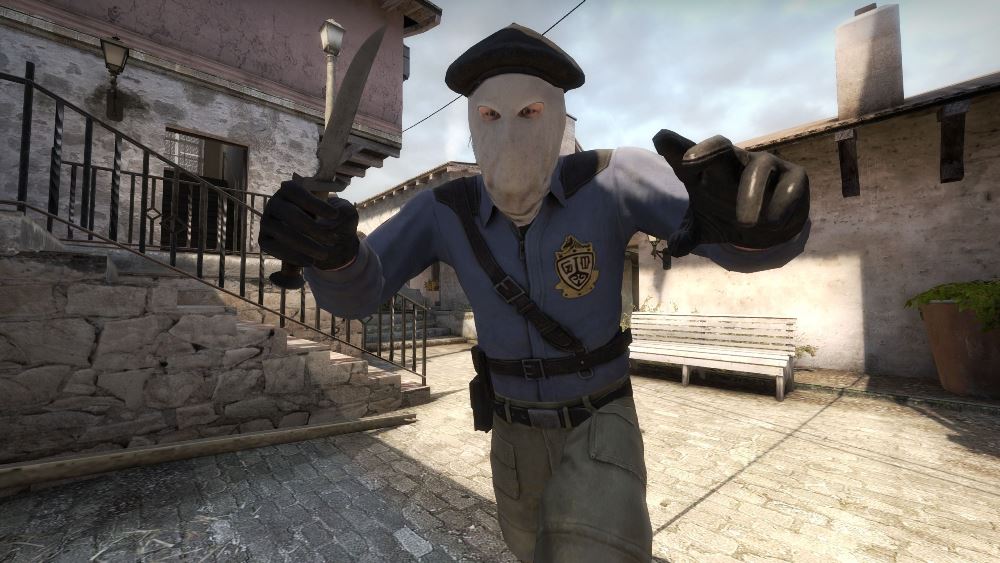
In the context of Counter-Strike: Global Offensive (CS:GO) gameplay itself, there aren’t really any “penalties” or “fines” as you might find in a sports game, such as football or basketball.
However, CS:GO does have a game mechanic called “Economy”. The game’s economy revolves around money that you earn by accomplishing various objectives such as killing enemies, winning rounds, or planting/defusing the bomb in certain game modes. The money is used to purchase equipment and weapons in the game.
That being said, there are actions that can impact your in-game economy, which might be considered penalties:
- Friendly Fire: Depending on the server settings, damaging or killing your teammates can result in a reduction of your earned money.
- Suicide or Self Damage: Similar to friendly fire, depending on server settings, if a player dies because they caused damage to themselves, they might be penalized financially in the next round.
- Failure to Achieve Objective: In some game modes, failure to complete the objective (e.g. planting the bomb in Bomb Scenario) can impact the amount of money you earn.
On the other hand, if you were asking about penalties and fines related to behavior outside of the game mechanics (for example, cheating, toxicity, etc.), then here are some potential repercussions:
- Cheating or Hacking: Players caught using cheat software or hacks can receive permanent bans from Valve Anti-Cheat (VAC), which bars the account from participating in VAC-secured servers of the game.
- Toxic Behavior: Constant reports of toxic behavior can result in penalties such as temporary or permanent matchmaking bans.
- Smurfing: While not directly penalized, the matchmaking system of CS:GO is designed to identify and handle smurf accounts (experienced players creating new accounts to play against less experienced players) by quickly adjusting their matchmaking rating based on their performance.
Professional CS:GO players in tournaments also need to adhere to a strict code of conduct and rules. Breaching these can result in penalties ranging from minor fines, point deductions, to major penalties such as disqualification or being banned from future tournaments. These penalties depend largely on the rules set by the organizing body.

Friendly Fire
In Counter-Strike: Global Offensive (CS:GO), friendly fire refers to instances where a player inflicts damage upon their own teammates. It’s an important aspect to consider for strategic gameplay and team coordination, but it’s not always enabled in every game mode or server.
Depending on the server’s configuration and game mode, friendly fire may be turned off (i.e., you cannot hurt your own teammates with bullets, grenades, or knife attacks), or it may be turned on (i.e., your actions can indeed cause damage to your own teammates).
If friendly fire is enabled and a player harms or kills a teammate, there can be in-game consequences:
- Economy Penalty: The player might lose money from their in-game economy. This penalty can affect a player’s ability to buy weapons and equipment in the next round(s).
- Kick from the Game: If a player continues to kill or inflict substantial damage on teammates, the system might automatically kick the player from the match.
These penalties serve to discourage “team killing” and promote teamwork and strategic play. Remember, the rules may vary depending on the server or the competition rules in the case of professional matches.
Suicide or Self Damage
In Counter-Strike: Global Offensive (CS:GO), self-damage or suicide refers to situations where a player inflicts harm upon themselves, potentially leading to their own death within the game. This could occur through a variety of means, such as getting caught in the blast radius of your own grenade or standing too close to the bomb when it explodes in bomb defusal maps.
Depending on the server settings and game rules, the following consequences may occur if a player damages themselves or commits suicide:
- Economy Penalty: If a player dies due to self-inflicted damage, they might receive less money or even a financial penalty in the next round. This can affect their ability to buy weapons and equipment.
- Round Loss: In some game modes, if the last player on a team dies due to self-inflicted damage, it will result in a round loss for that team.
- Kick from the Game: In some servers, if a player repeatedly damages themselves or commits suicide, they may be automatically kicked from the match as the system may interpret it as griefing behavior.
Remember, these penalties may not be consistent across all servers or game modes and will depend on the specific settings chosen by the server owner or the tournament organizers.
Failure to Achieve Objective
In Counter-Strike: Global Offensive (CS:GO), the primary objectives are different depending on the game mode. However, the two most common modes are Defusal (in which one team tries to plant a bomb and the other team tries to defuse it) and Hostage (in which one team tries to rescue hostages while the other tries to prevent this).
Failure to achieve these objectives can lead to different consequences:
- Economy Impact: In bomb defusal mode, the Terrorist team gets a significant economic bonus for successfully planting the bomb, even if they don’t ultimately win the round. If they fail to plant the bomb before the round ends, they miss out on this bonus.
- Round Loss: The most immediate consequence of not achieving the primary objective (whether it’s planting/defusing the bomb in Defusal mode or rescuing/preventing the rescue of hostages in Hostage mode) is losing the round.
- Match Loss: Rounds contribute to the outcome of the match. Therefore, consistently failing to achieve objectives can lead to the team losing the match.
It’s important to note that CS:GO is a team-based game, so while an individual player’s actions can influence the outcome of a round or match, the collective efforts of the team often have a much larger impact. Thus, communication and coordination with your team are key factors in successfully achieving objectives.
Cheating or Hacking
Cheating or hacking in Counter-Strike: Global Offensive (CS:GO) or any other game is highly discouraged and can result in severe penalties. These actions create an unfair playing environment and are against the terms of service for the game. Some examples of cheating or hacking include using aimbots (software that automatically aims for the player), wallhacks (software that allows a player to see through walls), or other types of cheat software that give a player an unfair advantage.
Valve, the company behind CS:GO, uses an anti-cheat service known as Valve Anti-Cheat (VAC) to detect cheats on a player’s computer.
If a player is caught cheating, the penalties can include:
- VAC Ban: This is the most common penalty for cheating. When a player receives a VAC ban, they are no longer able to connect to VAC-secured servers, essentially barring the player from playing competitive matches on their account. VAC bans are permanent and non-negotiable.
- Game Ban: In addition to VAC bans, CS:GO also has the Overwatch system, where selected experienced players review gameplay footage of reported users to decide if they were cheating. A player convicted by Overwatch receives a game ban, which functions similarly to a VAC ban.
- Loss of Trust Factor: CS:GO uses a system called Trust Factor matchmaking, which matches players based on a hidden score tied to their account. Cheating can lower your Trust Factor, making it more likely for you to get matched with other players who have a low Trust Factor.
- Loss of Inventory: When a VAC or game ban is applied, the banned account loses the ability to trade or sell items from its inventory, effectively making the items worthless.
Cheating not only ruins the game experience for others, but it also comes with serious consequences for the cheater. It’s always best to play games in a fair and sportsmanlike manner.
Toxic Behavior
Toxic behavior in Counter-Strike: Global Offensive (CS:GO) or any online game is discouraged and can lead to a range of penalties. This behavior can include things like verbal abuse, harassment, griefing (purposely sabotaging your own team), and other forms of negative conduct that ruin the game experience for others.
If a player engages in toxic behavior, they might face the following consequences:
- Muting: Toxic players can be muted by others, which can significantly hinder team communication and cooperation. In an update introduced in 2020, Valve added a feature where a player who frequently receives abuse reports will have their chat and voice communication automatically muted to all other players by default.
- Cooldowns or Bans: If a player frequently leaves matches, kills or harms teammates (griefing), or is frequently reported for abusive behavior, they can receive matchmaking cooldowns, meaning they’re temporarily banned from playing competitive matches. The length of the cooldown increases with each infraction, starting from 30 minutes and can escalate up to 7 days for frequently offending players.
- Loss of Trust Factor: Similar to cheating, toxic behavior can lower a player’s Trust Factor, a hidden score used in the game’s matchmaking system. Players with a low Trust Factor are more likely to be matched with other players with low Trust Factor scores, many of whom may also exhibit toxic behavior.
- Permanent Bans: In extreme cases, if a player continues to exhibit toxic behavior despite multiple warnings and temporary bans, they may receive a permanent ban.
While it can be frustrating to lose a match or deal with a difficult situation in a game, it’s always important to remember to treat other players with respect and maintain a sportsmanlike conduct. Toxic behavior not only ruins the experience for others, but it also can lead to severe penalties for the offending player.
Smurfing
“Smurfing” is a term used in gaming communities, including Counter-Strike: Global Offensive (CS:GO), to refer to the practice of experienced or high-skilled players creating a new account (or using a lower-ranked account) to play against less-experienced or lower-ranked players. This is typically done to take advantage of the skill discrepancy for easy wins or for a more casual gameplay experience. However, it is generally frowned upon as it can ruin the gaming experience for newer or lower-ranked players who may not be able to compete effectively against a more experienced player.
Valve does not directly penalize smurfing in CS:GO, as it can be difficult to distinguish between a player who is genuinely new and improving rapidly, and a player who is intentionally playing at a lower skill level.
However, there are some mechanisms in place to discourage smurfing:
- Matchmaking System: The matchmaking system in CS:GO is designed to identify players who consistently perform better than their current rank and adjust their ranking accordingly. This means that smurf accounts should quickly rise in rank to match their actual skill level, minimizing the time they spend in lower skill brackets.
- Prime Status: CS:GO has a “Prime” status that players can earn or purchase. Prime status grants access to exclusive matchmaking against other Prime players, who are generally more likely to be dedicated, legitimate players rather than smurfs or hackers. This can discourage smurfing since a new account would not have Prime status and would have to either be purchased or earned through gameplay.
- Trust Factor: Valve also uses a system called Trust Factor for matchmaking, which considers factors like the age of your account, your behavior in other Steam games, and more. Players who frequently create new accounts (like smurfs) might have a lower Trust Factor and would be matched with other players with low Trust Factor, which can include cheaters or other toxic players.
Remember, while smurfing is not directly punished, it is generally seen as a form of poor sportsmanship and is discouraged in the gaming community. It’s always best to play in a way that ensures a fair and enjoyable gaming experience for all players involved.


